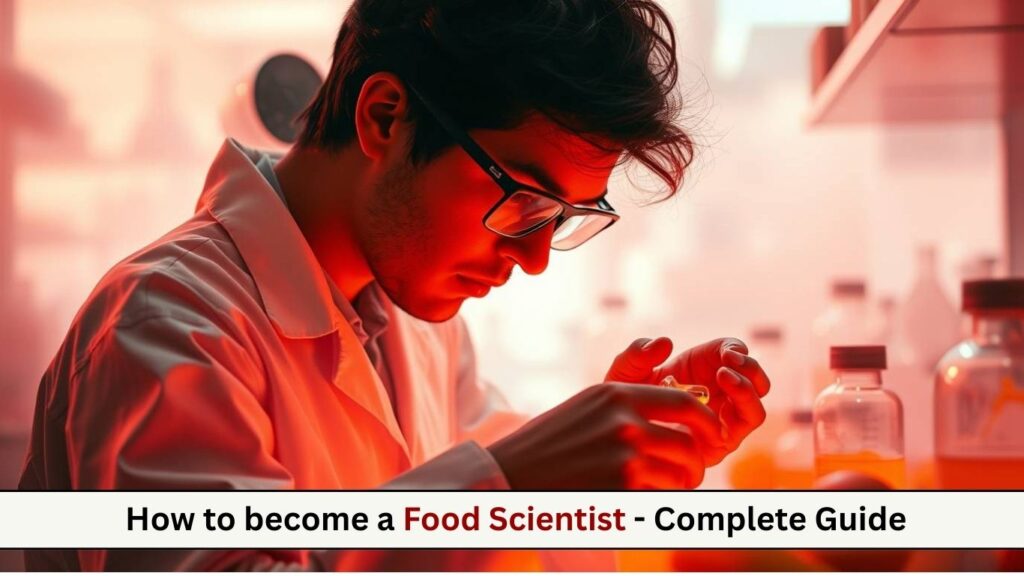
Introduction
Food science is a multidisciplinary field that combines chemistry, biology, nutrition, and engineering to improve food safety, quality, and sustainability. Food scientists play a crucial role in developing new food products, ensuring food safety, and optimizing production processes.
With the global food industry evolving rapidly due to technological advancements and changing consumer preferences, food scientists are in high demand. This guide covers:
- History of Food Science
- Roles and Responsibilities
- Salary and Job Outlook
- Required Qualifications
- How to Get Started
- Future Scope and Trends
Whether you’re a student or a professional exploring career options, this blog will help you understand the exciting world of food science.
History of Food Science
Food science has evolved alongside human civilization, from ancient preservation techniques to modern food technology.
Key Milestones:
- Ancient Times: Salt curing, fermentation, and drying were used for food preservation.
- 18th-19th Century: Canning (Nicolas Appert) and pasteurization (Louis Pasteur) revolutionized food safety.
- Early 20th Century: Food additives and processed foods emerged.
- Mid-20th Century: Development of frozen foods, instant meals, and nutritional science.
- 21st Century: Lab-grown meat, plant-based proteins, and AI-driven food innovation.
Today, food science integrates biotechnology, nanotechnology, and sustainability practices to meet global food demands.
Roles and Responsibilities of a Food Scientist
Food scientists work across various sectors, including research, production, quality control, and regulation.
Primary Responsibilities:
- Research & Development (R&D) – Creating new food products and improving existing ones.
- Quality Assurance & Control – Ensuring food safety standards (FDA, FSSAI, EU regulations).
- Food Processing & Preservation – Developing efficient packaging and storage methods.
- Sensory Evaluation – Testing taste, texture, and consumer preferences.
- Nutritional Analysis – Enhancing food health benefits and labeling accuracy.
- Regulatory Compliance – Ensuring adherence to food laws and certifications.
Work Environments:
- Food manufacturing companies (Nestlé, PepsiCo, Unilever)
- Government agencies (FDA, USDA, EFSA)
- Research labs and universities
- Food startups and biotech firms
Salary and Job Outlook for Food Scientists
Food science offers competitive salaries with strong growth potential.
Average Salaries (2024 Data):
| Country | Average Salary (Annual) |
|---|---|
| USA | $60,000 – $100,000 |
| UK | £30,000 – £50,000 |
| Canada | CAD 55,000 – CAD 85,000 |
| India | ₹3,00,000 – ₹8,00,000 |
| Australia | AUD 65,000 – AUD 95,000 |
Job Growth:
The U.S. Bureau of Labor Statistics (BLS) predicts a 7% growth in food science jobs by 2032, driven by demand for food safety, sustainability, and alternative proteins.
Qualifications Required to Become a Food Scientist
To enter this field, you need a mix of education, certifications, and skills.
Educational Requirements:
- Bachelor’s Degree – Food Science, Food Technology, Chemistry, or Microbiology.
- Master’s/PhD (For Research Roles) – Specializations in Food Chemistry, Food Microbiology, or Nutrition.
- Certifications (Optional but Beneficial) –
- Certified Food Scientist (CFS) – Institute of Food Technologists (IFT)
- HACCP Certification (Food Safety)
- PCQI (Preventive Controls Qualified Individual)
Essential Skills:
✔ Strong foundation in Chemistry & Biology
✔ Knowledge of Food Safety Standards (FDA, FSSAI, ISO)
✔ Lab Techniques (Microbiology, Spectroscopy)
✔ Data Analysis & Statistical Tools
✔ Problem-Solving & Innovation
How to Get Started in Food Science
Follow these steps to build a successful career in food science:
Step 1: Pursue a Relevant Degree
- B.Sc/B.Tech in Food Science, Food Technology, or related fields.
- Top institutions: UC Davis (USA), Wageningen University (Netherlands), IITs/CFTRI (India).
Step 2: Gain Hands-on Experience
- Internships at food companies (Nestlé, Kraft Heinz, Danone).
- Work in food testing labs or research projects.
Step 3: Obtain Certifications (If Needed)
- CFS (Certified Food Scientist)
- HACCP & Food Safety Training
Step 4: Build a Strong Resume & Network
- Attend food tech conferences (IFT, FoodTech Summit).
- Publish research or contribute to food science blogs.
Step 5: Apply for Jobs
- Job portals: LinkedIn, IFT Career Center, Food Industry Recruiters.
- Government jobs in food safety (FDA, FSSAI).
Future Scope of Food Science
The future of food science is driven by sustainability, technology, and changing consumer habits.
Emerging Trends:
- Alternative Proteins – Plant-based & lab-grown meat (Beyond Meat, Impossible Foods).
- Functional Foods – Probiotics, fortified foods for health benefits.
- Sustainable Packaging – Biodegradable & edible packaging solutions.
- AI & Automation in Food Production – Smart factories, robotics in food processing.
- Personalized Nutrition – DNA-based diet plans and nutrigenomics.
Top Companies Hiring Food Scientists:
- Nestlé
- PepsiCo
- Unilever
- Cargill
- Tyson Foods
- Startups (Perfect Day, NotCo, Eat Just)
Conclusion
Food science is a dynamic and impactful career with opportunities in innovation, sustainability, and global food security. With the rise of alternative proteins, smart food tech, and health-focused products, skilled food scientists are in high demand.
If you’re passionate about food, science, and technology, this field offers exciting career prospects. Start by gaining the right education, certifications, and industry experience.
Are you considering a career in food science? 🍎🔬Share your questions in the comments!













Post Comment